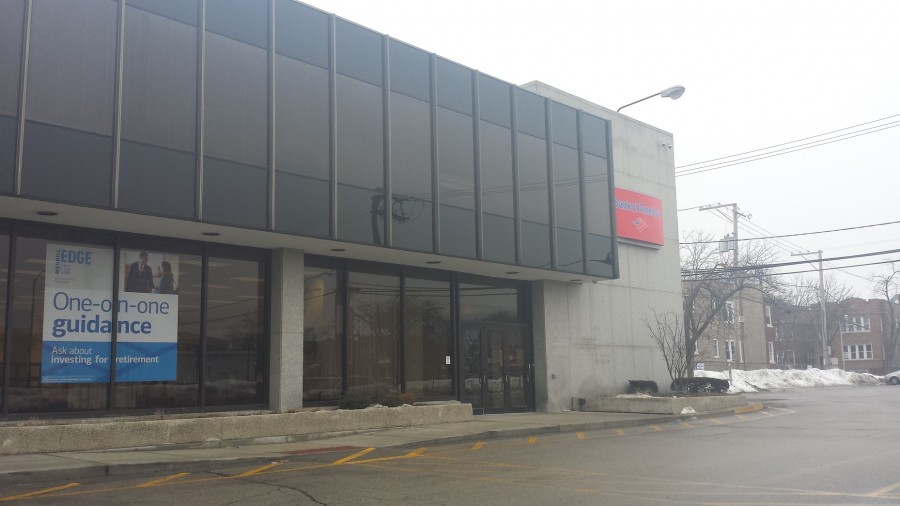You May be ‘Post-Racial’ but Your Black Friend’s Bank Account Isn’t
Depending on the neighborhood banks can be outnumbered by currency exchanges.
February 16, 2015
As a black woman, I often feel that I have to prioritize what I can be angry about at any given moment. Between the events in Ferguson and the unfair treatment of Marissa Alexander, I find myself struggling to reconcile what I was taught about equality with what I have seen in reality.
The Federal Reserve Bank of Chicago released a study in 2014 that found that the children of black middle class Americans are more likely to regress into a lower economic class than their parents once they become adults.
Bhashkar Mazumder, senior economist and director of the Chicago Census Research Data Center, headed the study and found that approximately 60 percent of black children who grew up with a household income that fell in the top 50 percentile slipped into the bottom half as adults. This is compared to only 36 percent of white children who had a similar economic regression. The reasons for this gap in economic stability are complex and varied, but legalized racial discrimination practices such as redlining play a large factor.
Redlining is the systematic denial or overcharging of financial services to people based on their ethnicity, gender, religion, or economic background. These type of restrictions have historically made it incredibly difficult for black Americans to acquire property, receive loans, and buy insurance. Despite the passage of the Fair Housing Act of 1968, redlining still occurs today in various forms.
Most likely as an indirect result of extensive redlining, many African-Americans have not been able to leave behind valuable assets for their descendants while white families have cumulatively benefitted from inheritances and trusts. This phenomenon interferes with inter-generational wealth transfer and ensures that black Americans will struggle economically.
Critics might say that the lack of wealth accumulation in the black community shouldn’t be blamed on practices of the past, and that hard work and education is the solution. As admirable as this viewpoint is, it ignores the fact that African-Americans, even those with college degrees, are consistently underemployed. Despite the wish of many for a ‘post-racial’ world, we are still far from it.
According to a 2011 article from USA Today, the Great Recession from 2007 to 2009 drastically reversed economic progress made by black Americans. An Economic Policy Institute study of Federal Reserve data reported that in 2004 the median net worth of white households was $134,280. That figure dropped by 24 percent to $97,860 in 2009. In contrast, African-American families had a median net worth of $13,450 which fell by 83 percent to $2,170.
The inequality doesn’t stop there. Multiple studies from various sources have confirmed that a white felon is more likely to get hired than a black person with no criminal record. One can only imagine that if this is happening to black Americans, how other racial and ethnic groups are faring in a supposedly equal society. The lack of data on the comparative economic status of Latinos and Asian-Americans is glaring and indicates our culture’s need for a shift away from a mostly black-white racial paradigm.
On a personal level these social observations are incredibly disheartening. As a child, I foolishly believed that I was safe from racial discrimination as long as I kept my head down and worked hard in school. The gradual realization that no degree can protect me from experiencing inequality based on the color of my skin was very important to my development as an adolescent, and has since carried over into adulthood.
Despite this I continue to pursue my education with the hope and dream that the sacrifices of those that came before me were not in vain.








